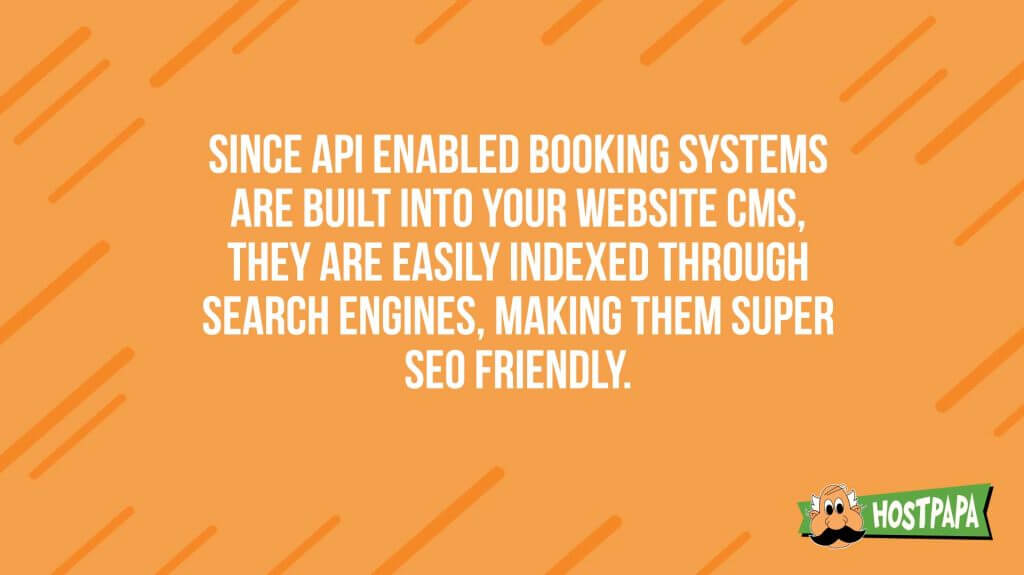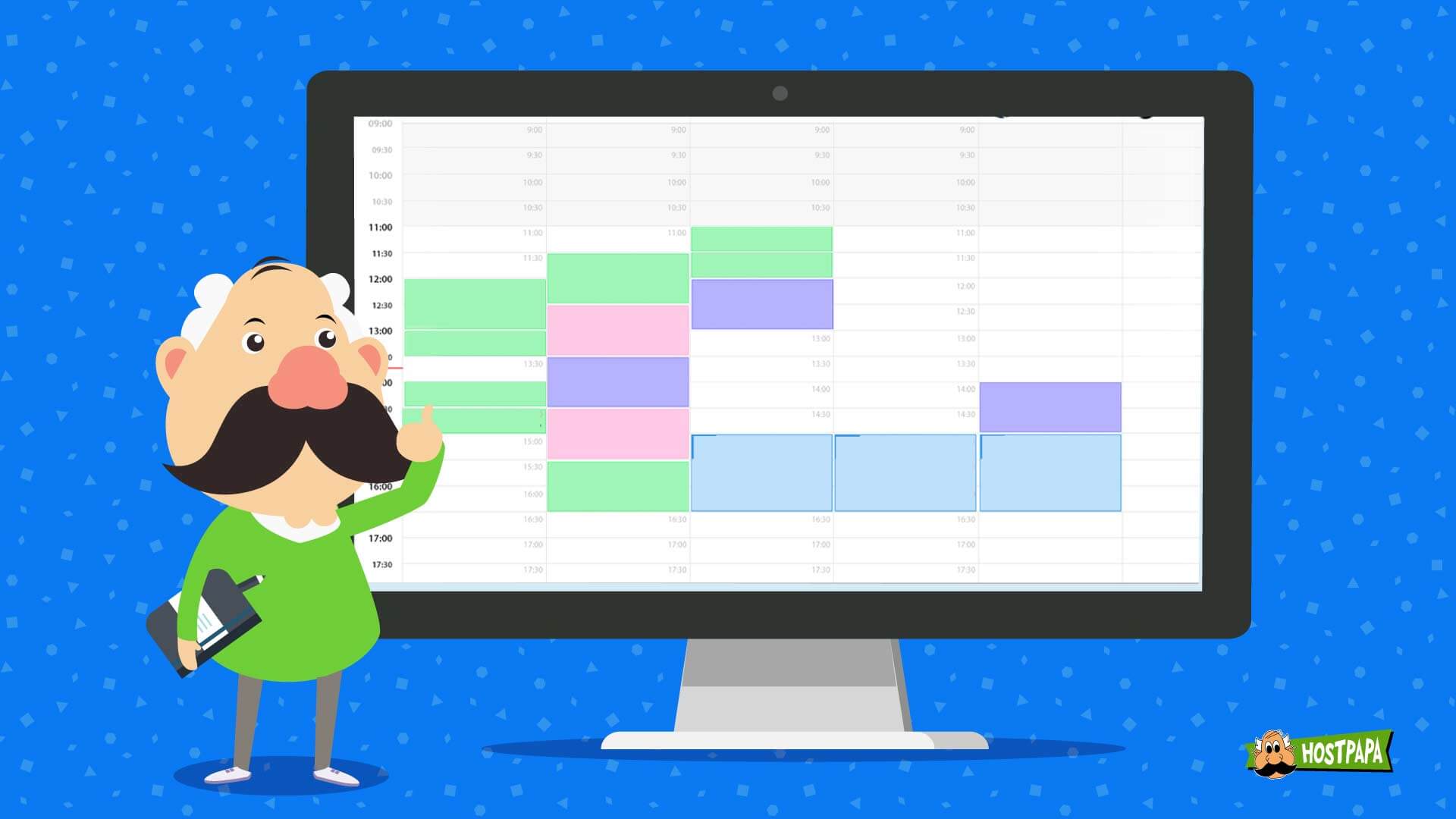If you’re a business that relies on taking appointments from people, you need to make it easy for them to make appointments online.
For example, let’s say you have amazing villas in cabo right by the ocean that you’re renting through your website. Imagine the convenience you’d be offering to your customers by letting them book a room in the villa at any time of the day, without having to wait in long queues or taking extra steps like contacting you via email.
That’s exactly why you need an online booking system on your website! And we’re dedicating this entire article to helping you learn about your options to create, develop, and integrate an online booking system that works and the pros and cons of each one!
So let the fun begin.

1. Direct Users to an External Booking Website
The easiest way to provide an online booking option is to insert a link to an external booking engine. All you need to do is pick the online booking system you like, and then add a link to your website for it.
This method requires no time or cost investment in building your own customized online booking platform. It’s also one of the fastest ways to provide a booking facility to your users. But, of course, you’ll most likely need to pay for using the services of an external online booking website service provider.
The only drawback of using this method is that you’ll be sending your website traffic to another location, outside your own website. It’s possible customers might lose interest by having to go to a different website, or they may not trust to make a booking if something goes wrong in the process.
Another factor to consider is that you’re reliant on another booking platform’s infrastructure, so you may not have many things under your control. The external link will most likely have their own branding (so it won’t be aligned to your brand), and your image will be connected to the performance of an external booking service provider. Or consider using travel software development services to create a site for travellers.
2. Embed a Booking System IFrame into Your Website
Another way is to embed a booking system on your website, along with the actual calendar or frame used to allow people to make bookings. This is what you’d call a “booking system IFrame”, and only requires embedding code onto your website, just like you would for embedding a video that plays on your website.

The benefits of such a system are that you can do it with minimal time and money investment, and you need no technical background to embed some code into your website’s backend. Your users continue to stay on your website while they’re making bookings, so there’s no risk of them losing interest or patience while they’re making a booking.
The downside, however, is that once again you’re reliant on the code and infrastructure of a third party online booking system provider, which can be unstable. Search engines, at times, find it hard to index externally embedded code that you put onto your site. So this solution may not be the best fit for SEO purposes.
3. Use Plugins
Online plugins offer an efficient way to add a booking system to your website. One example is Bookly. It’s an online booking system plugin for WordPress that works beautifully, since it gives appointment bookers confirmation notifications, and integrates well to allow users to make bookings even through their mobile device with ease.
This plugin is great for small businesses with WordPress sites, like photography studios, wealth management advisory firms, and hair salons. You can start with a free version, which has all features apart from accepting online payments. Later you could decide to upgrade to the paid version which comes with the ability to accept online payments.
Most CMS platforms will have plugins that are compatible with them. So you should put some effort into investigating which plugin would be a perfect fit for your website CMS.
The online booking system these plugins provide is perfectly mobile responsive and comes with an admin panel you can work your way around with ease. No coding experience is required to install and use this plugin, which makes it simple for any website administrator, regardless of your expertise level.
Another great thing about using these plugins is that they allow you to configure and customize the online booking system to suit your design needs. Moreover, they also include an inbuilt analytics feature providing insights on all bookings, which can be used to improve your services.

4. Use an API
Another way is to use an API (application program interface) for online booking systems. Most CMS platforms come with an inbuilt online booking system API that you can make full use of. As it comes along with the CMS, it’s also usually the best fit as an online booking system.
Since API enabled booking systems are built into your website CMS, they are easily indexed through search engines, making them super SEO friendly. These booking systems integrate both external data collected by the website, and internal data collected through previous bookings in order to provide you with meaningful insights.
Two things to watch out for when using APIs is that, firstly, they may require technical expertise, so if you’re not pretty technical yourself, we suggest you put some budget aside for having an expert by your side. Secondly, we recommend that you make sure your APIs are always up to date with the latest version, to avoid the risk of your booking system crashing and becoming obsolete.
5. Develop a Custom Coded Booking System
Finally, if your business is complex and relying strongly on a booking system, developing a custom-coded online booking system is the best, most robust solution you can have for your website. Bear in mind that you’ll need to engage the services of a team (designer, developer and product manager) to build this solution.

The benefit of going down this path is that it’s a solution for the long term. So you’ll feel like your investment is worthwhile over time. We’d recommend using this solution if you have a large number of bookings with complex details, so your investment in building the platform is well-justified.
It’s a solution worth looking into, but given the investment level and required time, you should make sure it’s the right one for your business!
So Which Booking System is Best For You?
Like anything in life, there might not be such a thing as the “perfect online booking system”. You need to evaluate what your needs are, what you want your online booking system to do for you, and which one would serve your audience best. The good thing is you can always experience. Start with one of the options mentioned above and then switch to other better, more expensive options when you have the budget, or depending on what you see works best for you!
Have you ever used any of these booking systems? Let us know!




